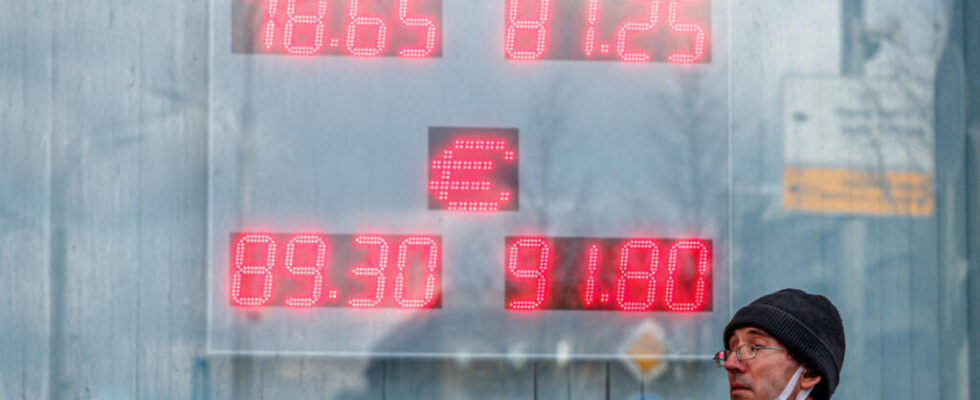The Moscow Stock Exchange suspended transactions in euros and dollars on Thursday June 13 after the American sanctions announced the day before. A decision which generated a moment of panic among some Russians
2 mins
With our correspondent in Moscow, Anissa El Jabri
This decision to suspend all transactions in euros and dollars on the Moscow Stock Exchange does not prevent Russian citizens from carrying out transactions in dollars and euros in the country’s banks. But the new round of economic sanctions from UNITED STATES aimed at Russia had already caused panic among some.
Read alsoUS unveils new wave of US sanctions against Russian war effort
In front of banking establishments, in Moscow, Saint Petersburg, Novosibirsk… massively, Russians lined up for hours on Wednesday evening to buy dollars and euros. They were worried that the national currency was entering a negative spiral. A reflex established in the 90s, where the instability of the ruble in relation to the dollar and the euro and successive devaluations already led those who could to seek refuge in currencies.
Abnormal exchange rates
Thursday morning, the Moscow stock exchange had lost 15% from the opening. And some banks still showed huge gaps between buying and selling Western currencies. Establishments offered the purchase of a euro for 60.40 rubles and the sale of a ruble for 137.40 euros. According to numerous testimonies collected since Thursday also, it was impossible since Wednesday evening to transfer Western currencies from a Russian bank to a bank in another country.
At midday, the Kremlin spokesperson publicly affirmed that “ the central bank is able to ensure stability in the markets and is doing so “. In fact, exchange rates stabilized in the hours that followed. Also, the Kremlin promised to respond to American sanctions, without specifying in what form.
Read alsoNATO plans to toughen its response to Russian attacks and attempts at destabilization
Above all, many Russian companies and banks have already reduced their dependence on Western currencies. For two years, the Chinese currency has established itself. In fact, the Chinese yuan now accounts for the majority of foreign exchange transactions on the Moscow Stock Exchange.
